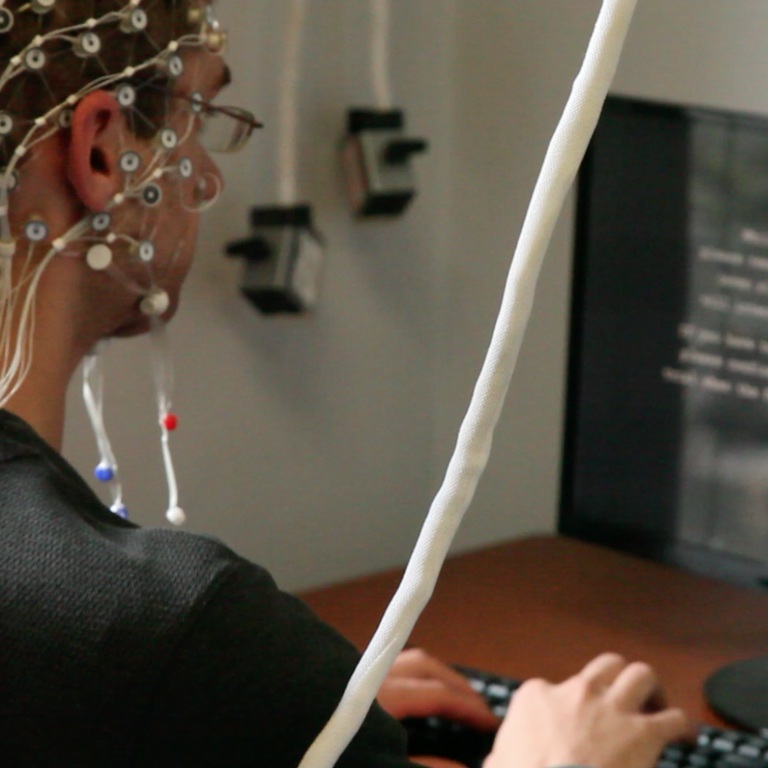by Sarah Steimer, University of Chicago News
Many people lump together the concepts of happiness and meaning when describing a “good life “ — but how do we actually value each for ourselves and for others? New research published in the Journal of Experimental Psychology: General helps to better explain the social cognitive processes underlying how we perceive meaning, along with exploring the similarities and differences between people’s conceptualizations of meaning and happiness.
The research was led by Fan Yang, a research assistant professor in the Department of Psychology and director at the Human Nature and Potentials Lab, part of the Center for Practical Wisdom. The center’s goal is to seek a scientific understanding of wisdom and its role in individuals’ decisions and choices. Yang herself undertook this project because of her long-term interest in life’s meaning and a lack of systemic psychological research on the concepts of meaning and happiness.
“People have studied meaning in life in terms of all kinds of things: They correlated it with income, with education,” Yang says. “But it doesn't answer my questions about how people think about what is meaningful. I wanted to directly approach this question, and that's why we focus on how people make meaning judgments in relation to the self.”
Yang and her student Mengdi Huang used seven studies for the project to determine which factors give rise to perceptions of meaning. They examined the role of self-transcendence (i.e., benefits to society) and self-enhancement (i.e., benefits to the self) in people’s judgments of meaning, in comparison to their judgments of happiness.
In one of the early studies, the team asked people to rate different types of jobs to determine how they value the meaning of each. People were then asked to rate how much they believed the job benefits the person versus society as indicators of self-transcendence versus self-enhancement. They found perceptions of benefits to society were a stronger predictor of a job’s meaning than perceptions of beneficial to the self.
Based on these findings, they conducted more studies that manipulated the self benefits versus societal benefits, then measured people’s perceptions of meaning and happiness — finding very consistent evidence that people value benefits to society more than benefits to the self when evaluating for meaning. On the other hand, their research also showed that people valued both self-transcendence and self-enhancement equally when evaluating measures of happiness.
The team then manipulated the studies to evaluate for the first person, versus the third person. They found that when people rated their own jobs for meaning, they valued benefits to themselves and to society equally. And for happiness, they value benefits to self more than benefits to society.
When the evaluations were disguised by way of offering advice for improving meaningfulness and happiness, the participants again valued benefits to the self and to society equally in terms of meaningfulness, and they valued benefits to the self more when increasing their own happiness. These results suggest people value self-enhancement more when thinking about meaning and happiness in their own life compared to thinking about others’ life.
In the final study, the participants were given actual tasks and told it would either benefit society (self-transcendence) or help them earn more money (self-enhancement). It again gave people more meaning when they felt it benefited society, whereas both tasks were found to similarly increase their feelings of happiness.
Yang says there are two major takeaways from the study. The first is that people's thoughts and feelings around meaning are geared more toward self-transcendence. People think more about benefits to society when they think about meaning, versus when they think about happiness.
Second, people's views of meaning and happiness also depend on their point of view. We tend to focus on self-transcendence more when we think about meaning and happiness in other people’s life than when we're thinking about ourselves. But Yang cautions against assuming one point of view is better than the other.
“Our current findings suggest that people value self-transcendence in meaning, but it doesn’t mean that self-enhancements, or self-interest, don't matter for meaning and happiness in life,” she says.
Huang, M., & Yang, F. (2022). Self-transcendence or self-enhancement: People’s perceptions of meaning and happiness in relation to the self. Journal of Experimental Psychology: General. Advance online publication. https://doi.org/10.1037/xge0001297



